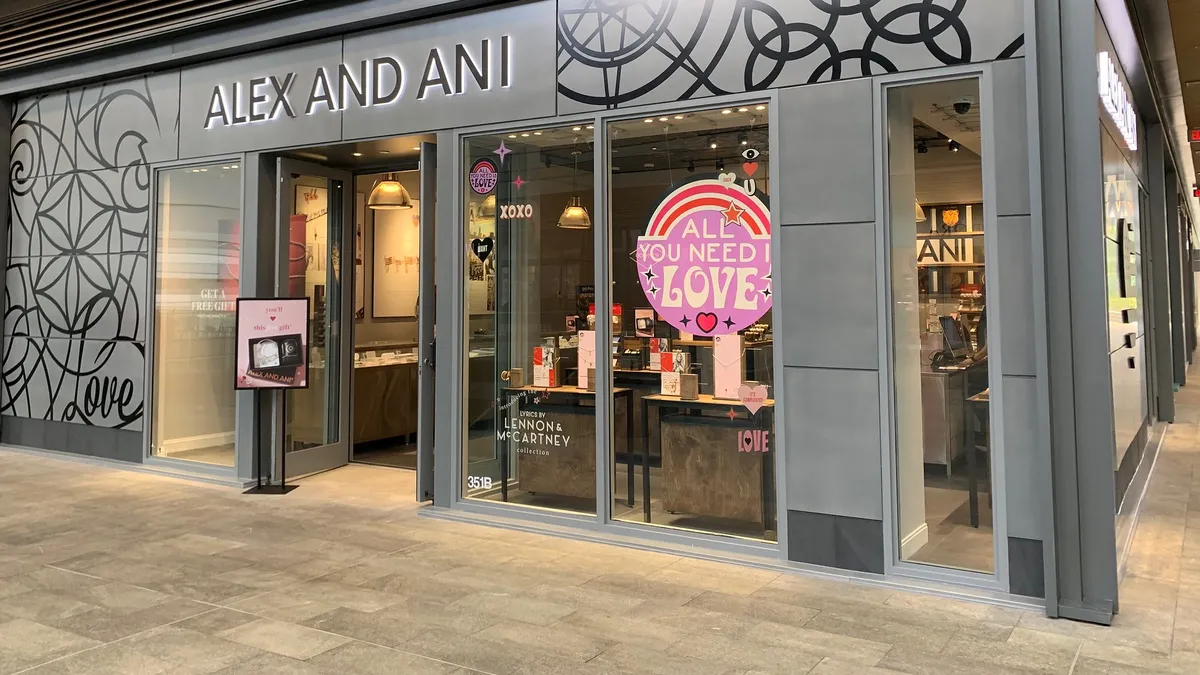Dive Brief:
- Jewelry retailer Alex and Ani has a new $17.5 million loan to fund its working capital needs and operations following last year’s restructuring in Chapter 11.
- The company has closed on the senior secured credit facility, provided by middle market asset-based loan specialist Second Avenue Capital Partners.
- The financing represents an “affirmation of the resiliency of the reorganized Alex and Ani brand and even more so of our vision for the future,” Alex and Ani CEO Scott Burger said in a press release.
Dive Insight:
Founded in 2004 by Carolyn Rafaelian in the basement of her father’s jewelry factory, Alex and Ani rose to fame on its customizable, expandable wire charm bracelets. In less than a decade, the company was selling 10 million bracelets a year.
Last decade brought several troubles for the company, including executive turnover, botched inventory management, a loan default and wrongful termination lawsuits from ex-employees, according to court papers last year.
The company filed for bankruptcy in 2021 after first a ransomware virus disrupted operations and then COVID-19 disrupted the entire retailing world.
Alex and Ani planned to put itself on the auction block, but when no bids came in it moved forward with a reorganization plan that turned ownership over to lenders. A federal bankruptcy judge confirmed the plan last September.
The financing and partnership with Second Avenue will help Alex and Ani “optimize” its capital structure as it pursues short and long-term growth strategies, Burger said.
Chris O’Connor, president of Second Avenue, noted in the release that Alex and Ani has since expanded its leadership. That includes Burger, a former president of jewelry retailer Pandora’s Americas division, who joined Alex and Ani earlier this year.
The expanded leadership “has allowed the company to take a step back and focus on the foundation of the business,” O’Connor said.
The loan, along with recent reports that Bed Bath & Beyond has found a lender to help fund liquidity needs, is one sign that the capital markets are still able to fund retailers’ operational needs amid higher interest rates and concerns about consumer confidence.
















